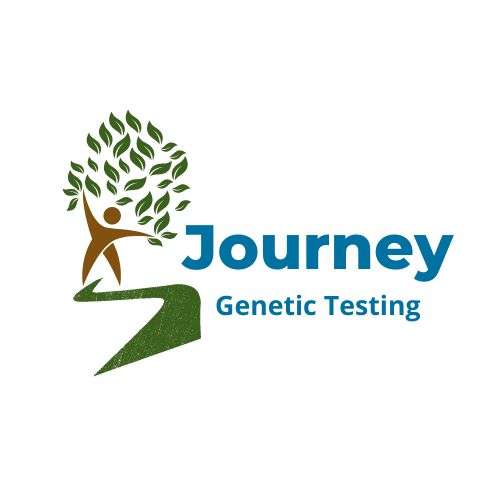DNA Testing In California
Approved California DNA Testing
Journey Genetic Testing provides accredited, affordable, and 100% accurate DNA testing in California.
Our testing services specialize in paternity and family relationship genetic testing. Depending on your unique circumstances and need, we can produce results that are either for peace of mind, or are court-ready.
Confidential at home DNA kits accepted for use in California will provide the same results as legally admissible process, but are not usually allowed in court as there is no confirmation of the individual of those providing the DNA samples for the laboratory study.
Our legal AABB accredited DNA results can be used in court for matters such as: child support, birth certificates, and custody cases. Legal test reports can also be used for Social Security benefits, IRS verification of dependents, probate issues, and immigration cases. We have a legal DNA collection network of over 3,500 locations across the U.S.A., and will be able to arrange an appointment for you with a collection location close to your home or office.
DNA Tests We Offer in California
Our California Approved DNA Tests Are 100% Accurate
Journey Genetic Testing’s home paternity test and relationship DNA tests provides you with a conclusive and accurate result for DNA testing between the participants. Our parent laboratory performs every DNA test twice, and the results are ready in just 1-2 business days, depending on the test. Every DNA test we do in your state is guaranteed to be California approved and 100% accurate. And above all, your result will establish the truth of the relationship tested for. Get the answers you need and deserve today,
Journey Genetic Testing offers the best DNA paternity test at the lowest prices in the industry. Furthermore, all of our home DNA tests are performed by expert geneticists using scientifically-valid methods and state-of-the-art equipment in our AABB accredited partner laboratory, located in the USA. No test results are released until all data has been examined, and approved, by one of our experienced laboratory Ph.D.’s.
Our DNA testing service is unmatched in quality and yet very affordable. You can be assured that your DNA samples will be handled discreetly and processed confidentially. With our technology and affordable DNA test prices, there is no longer a need to go without knowing the truth about a biological relationship.
California Paternity Law
It may be helpful, if you considering a DNA test to establish paternity, to be aware of the legal statutes in California regarding paternity. The following information about California paternity law is provided as general information only. Journey Genetic Testing does not provide legal advice or representation. We encourage you to research your state laws for the most current information, or contact a family law attorney.
Read California’s Paternity Laws
California Paternity Law: Bill Number AB 2380 Chapters 2 and 3
CHAPTER 2. PARENT-CHILD RELATIONSHIP
- (a) The mother-child relationship is established between a woman and a child by any of the following:
- (1) The woman’s having given birth to the child.
- (2) An adjudication of the woman’s maternity.
- (3) Adoption of the child by the woman.
(b) The father-child relationship is established between a man and a child by any of the following:
- (1) An unrebutted presumption of the man’s paternity of the child under Section 7624.
- (2) An effective acknowledgment of paternity by the man under Chapter 3 (commencing with Section 7631), unless the acknowledgment has been rescinded or successfully challenged.
- (3) An adjudication of the man’s paternity.
- (4) Adoption of the child by the man.
- (5) The man’s having consented to assisted reproduction by a woman under Chapter 7 (commencing with Section 7671) which resulted in the birth of the child.
- A child born to parents who are not married to each other has the same rights under the law as a child born to parents who are married to each other.
- Unless parental rights are terminated, a parent-child relationship established under this part applies for all purposes, except as otherwise specifically provided by other law of this state.
- (a) A man is presumed to be the father of a child if any of the following apply:
- (1) He and the mother of the child are married to each other and the child is born during the marriage.
- (2) He and the mother of the child were married to each other and the child is born within 300 days after the marriage is terminated by death, annulment, declaration of invalidity, or divorce, or after a decree of separation.
- (3) Before the birth of the child, he and the mother of the child married each other in apparent compliance with law, even if the attempted marriage is or could be declared invalid, and the child is born during the invalid marriage or within 300 days after its termination by death, annulment, declaration of invalidity, or divorce, or after a decree of separation.
- (4) After the birth of the child, he and the mother of the child married each other in apparent compliance with law, whether or not the marriage is or could be declared invalid, and he voluntarily asserted his paternity of the child and one of the following applies:
- (A) The assertion is in a record filed with a state agency maintaining birth records.
- (B) He agreed to be and is named as the child’s father on the child’s birth certificate.
- (C) He promised in a record to support the child as his own.
- (5) For the first two years of the child’s life, he resided in the same household with the child and openly held out the child as his own.
(b) A presumption of paternity established under this section may be rebutted only by an adjudication under Chapter 6 (commencing with Section 7661).
CHAPTER 3. VOLUNTARY ACKNOWLEDGMENT OF PATERNITY
- The mother of a child and a man claiming to be the genetic father of the child may sign an acknowledgment of paternity with intent to establish the man’s paternity.
- (a) An acknowledgment of paternity shall include all of the following:
- (1) Be in a record.
- (2) Be signed, or otherwise authenticated, under penalty of perjury by the mother and by the man seeking to establish his paternity.
- (3) State that the child whose paternity is being acknowledged:
- (A) Does not have a presumed father, or has a presumed father whose full name is stated; and
- (B) Does not have another acknowledged or adjudicated father.
- (4) State whether there has been genetic testing and, if so, that the acknowledging man’s claim of paternity is consistent with the results of the testing.
- (5) State that the signatories understand that the acknowledgment is the equivalent of a judicial adjudication of paternity of the child and that a challenge to the acknowledgment is permitted only under limited circumstances and is barred after two years.
(b) An acknowledgment of paternity is void if it does any of the following:
- (1) States that another man is a presumed father, unless a denial of paternity signed or otherwise authenticated by the presumed father is filed with the agency maintaining birth records.
- (2) States that another man is an acknowledged or adjudicated father.
- (3) Falsely denies the existence of a presumed, acknowledged, or adjudicated father of the child.
(c) A presumed father may sign or otherwise authenticate an acknowledgment of paternity.
- A presumed father may sign a denial of his paternity. The denial is valid only if all of the following apply:
(a) An acknowledgment of paternity signed, or otherwise authenticated, by another man is filed pursuant to Section 7635.
(b) The denial is in a record, and is signed, or otherwise authenticated, under penalty of perjury.
(c) The presumed father has not previously either:
- (1) Acknowledged his paternity, unless the previous acknowledgment has been rescinded pursuant to Section 7637 or successfully challenged pursuant to Section 7638.
- (2) Been adjudicated to be the father of the child.
- (a) An acknowledgment of paternity and a denial of paternity may be contained in a single document or may be signed in counterparts, and may be filed separately or simultaneously. If the acknowledgement and denial are both necessary, neither is valid until both are filed.
(b) An acknowledgment of paternity or a denial of paternity may be signed before the birth of the child.
(c) Subject to subdivision (a), an acknowledgment of paternity or denial of paternity takes effect on the birth of the child or the filing of the document with the Department of Child Support Services, whichever occurs later.
(d) An acknowledgment of paternity or denial of paternity signed by a minor is valid if it is otherwise in compliance with this part.
- (a) Except as otherwise provided in Sections 7637 and 7638, a valid acknowledgment of paternity filed with the Department of Child Support Services is equivalent to an adjudication of paternity of a child and confers upon the acknowledged father all of the rights and duties of a parent.
(b) Except as otherwise provided in Sections 7637 and 7638, a valid denial of paternity by a presumed father filed with the Department of Child Support Services in conjunction with a valid acknowledgment of paternity is equivalent to an adjudication of the nonpaternity of the presumed father and discharges the presumed father from all rights and duties of a parent.
- The Department of Child Support Services shall charge a fee for filing an acknowledgment of paternity or denial of paternity to cover the costs of maintaining the registry.
- A signatory may rescind an acknowledgment of paternity or denial of paternity by commencing a proceeding to rescind before the earlier of:
(a) Sixty days after the effective date of the acknowledgment or denial, as provided in Section 7634.
(b) The date of the first hearing, in a proceeding to which the signatory is a party, before a court to adjudicate an issue relating to the child, including a proceeding that establishes support.
- (a) After the period for rescission under Section 7637 has expired, a signatory of an acknowledgment of paternity or denial of paternity may commence a proceeding to challenge the acknowledgment or denial only:
- (1) On the basis of fraud, duress, or material mistake of fact; and
- (2) Within two years after the acknowledgment or denial is filed with the Department of Child Support Services.
(b) A party challenging an acknowledgment of paternity or denial of paternity has the burden of proof.
- (a) Every signatory to an acknowledgment of paternity and any related denial of paternity shall be made a party to a proceeding to rescind or challenge the acknowledgment or denial.
(b) For the purpose of rescission of, or challenge to, an acknowledgment of paternity or denial of paternity, a signatory submits to personal jurisdiction of this state by signing the acknowledgment or denial, effective upon the filing of the document with the agency maintaining birth records.
(c) Except for good cause shown, during the pendency of a proceeding to rescind or challenge an acknowledgment of paternity or denial of paternity, the court may not suspend the legal responsibilities of a signatory arising from the acknowledgment, including the duty to pay child support.
(d) A proceeding to rescind or to challenge an acknowledgment of paternity or denial of paternity shall be conducted in the same manner as a proceeding to adjudicate parentage under Chapter 6 (commencing with Section 7661).
(e) At the conclusion of a proceeding to rescind or challenge an acknowledgment of paternity or denial of paternity, the court shall order the agency maintaining birth records to amend the birth record of the child, if appropriate.
7639.10. A court or administrative agency conducting a judicial or administrative proceeding is not required or permitted to ratify an unchallenged acknowledgment of paternity.
7639.11. A court of this state shall give full faith and credit to an acknowledgment of paternity or denial of paternity effective in another state if the acknowledgment or denial has been signed and is otherwise in compliance with the law of the other state.
7639.12. (a) To facilitate compliance with this chapter, the Department of Child Support Services shall prescribe forms for the acknowledgment of paternity and the denial of paternity.
(b) A valid acknowledgment of paternity or denial of paternity is not affected by a later modification of the prescribed form.
7639.13. The Department of Child Support Services may release information relating to the acknowledgment of paternity or denial of paternity to a signatory of the acknowledgment or denial and to courts and appropriate state or federal agencies of this or another state.
7639.14. The Department of Child Support Services may adopt rules to implement this chapter.
Required Probability of Paternity for California Courts: 99%
DNA Testing Locations In California
At-home, peace of mind DNA kits can be sent to any location in California, including P.O. Boxes. We ship all DNA collection kits by USPS Priority mail. You will received a USPS tracking number for your kit, and in most cases, have it in 1-2 business days as we ship from our corporate office in Portland, OR.
For court admissible legal paternity and relationship testing, we have professional DNA specimen collection sites in or close to most California (CA) cities. All legal testing is by appointment, which we will schedule for you based on your availablility. You will be able to access these sites easily from your home or office.
Here is a list of the cities where there is an approved DNA collection center in, or near, for legal testing in California.
- Adelanto
- Agoura Hills
- Alameda
- Albany
- Alhambra
- Aliso Viejo
- Alpine
- American Canyon
- Anaheim
- Anderson
- Antioch
- Apple Valley
- Arcadia
- Arcata
- Arroyo Grande
- Artesia
- Arvin
- Atascadero
- Atwater
- Auburn
- Avenal
- Azusa
- Bakersfield
- Baldwin Park
- Banning
- Barstow
- Beaumont
- Bell
- Bell Gardens
- Bellflower
- Belmont
- Benicia
- Berkeley
- Beverly Hills
- Blythe
- Brawley
- Brea
- Brentwood
- Buena Park
- Burbank
- Burlingame
- Calabasas
- Calexico
- California City
- Camarillo
- Campbell
- Canyon Lake
- Carlsbad
- Carpinteria
- Carson
- Cathedral City
- Ceres
- Cerritos
- Chico
- Chino
- Chino Hills
- Chowchilla
- Chula Vista
- Citrus Heights
- Claremont
- Clayton
- Clearlake
- Clovis
- Coachella
- Coalinga
- Colton
- Commerce
- Compton East
- Concord
- Corcoran
- Corona
- Coronado
- Costa Mesa
- Covina
- Cudahy
- Culver City
- Cupertino
- Cypress
- Daly City
- Dana Point
- Danville
- Davis
- Delano
- Desert Hot Springs
- Diamond Bar
- Dinuba
- Dixon
- Downey
- Duarte
- Dublin
- East Palo Alto
- El Cajon
- El Centro
- El Cerrito
- El Monte
- El Paso de Robles
- El Segundo
- Elk Grove
- Encinitas
- Escondido
- Eureka
- Fairfield
- Fillmore
- Folsom
- Fontana
- Fortuna
- Foster City
- Fountain Valley
- Fremont
- Fresno
- Fullerton
- Galt
- Garden Grove
- Gardena
- Gilroy
- Glendale
- Glendora
- Goleta
- Grand Terrace
- Grass Valley
- Greenfield
- Grover Beach
- Half Moon Bay
- Hanford
- Hawaiian Gardens
- Hawthorne
- Hayward
- Healdsburg
- Hemet
- Hercules
- Hermosa Beach
- Hesperia
- Highland
- Hillsborough
- Hollister
- Huntington Beach
- Huntington Park
- Imperial Beach
- Indio
- Inglewood
- Irvine
- Kerman
- King City
- Kingsburg
- La Canada Flintridge
- La Habra
- La Mesa
- La Mirada
- La Palma
- La Puente
- La Quinta
- La Verne
- Lafayette
- Laguna Beach
- Laguna Hills
- Laguna Niguel
- Laguna Woods
- Lake Elsinore
- Lake Forest
- Lakewood
- Lancaster
- Larkspur
- Lathrop
- Lawndale
- Lemon Grove
- Lemoore
- Lincoln
- Lindsay
- Livermore
- Livingston
- Lodi
- Loma Linda
- Lomita
- Lompoc
- Long Beach
- Los Alamitos
- Los Altos
- Los Angeles
- Los Banos
- Los Gatos
- Lynwood
- Madera
- Malibu
- Manhattan Beach
- Manteca
- Marina
- Martinez
- Marysville
- Maywood
- McFarland
- Menlo Park
- Merced
- Mill Valley
- Millbrae
- Milpitas
- Mission Viejo
- Modesto
- Monrovia
- Montclair
- Montebello
- Monterey
- Monterey Park
- Moorpark
- Moraga
- Moreno Valley
- Morgan Hill
- Morro Bay
- Mountain View
- Murrieta
- Napa
- National City
- Newark
- Newport Beach
- Norco
- Norwalk
- Novato
- Oakdale
- Oakland
- Oakley
- Oceanside
- Ontario
- Orange
- Orinda
- Oroville
- Oxnard
- Pacific Grove
- Pacifica
- Palm Desert
- Palm Springs
- Palmdale
- Palo Alto
- Palos Verdes Estates
- Paradise
- Paramount
- Parlier
- Pasadena
- Patterson
- Perris
- Petaluma
- Pico Rivera
- Piedmont
- Pinole
- Pittsburg
- Placentia
- Placerville
- Pleasant Hill
- Pleasanton
- Pomona
- Port Hueneme
- Porterville
- Poway
- Ramona
- Rancho Cordova
- Rancho Cucamonga
- Rancho Mirage
- Rancho Palos Verdes
- Rancho Santa Margarita
- Red Bluff
- Redding
- Redlands
- Redondo Beach
- Redwood City
- Reedley
- Rialto
- Richmond
- Ridgecrest
- Ripon
- Riverbank
- Riverside
- Rocklin
- Rohnert Park
- Rosemead
- Roseville
- Sacramento
- Salinas
- San Anselmo
- San Bernardino
- San Bruno
- San Buenaventura
- San Carlos
- San Clemente
- San Diego
- San Dimas
- San Fernando
- San Francisco
- San Gabriel
- San Jacinto
- San Jose
- San Juan Capistrano
- San Leandro
- San Luis Obispo
- San Marcos
- San Marino
- San Mateo
- San Pablo
- San Rafael
- San Ramon
- Sanger
- Santa Ana
- Santa Barbara
- Santa Clara
- Santa Clarita
- Santa Cruz
- Santa Fe Springs
- Santa Maria
- Santa Monica
- Santa Paula
- Santa Rosa
- Santee
- Saratoga
- Scotts Valley
- Seal Beach
- Seaside
- Selma
- Shafter
- Shasta Lake
- Sierra Madre
- Signal Hill
- Simi Valley
- Solana Beach
- Soledad
- South El Monte
- South Gate
- South Lake Tahoe
- South Pasadena
- South San Francisco
- South Yuba
- Stanton
- Stockton
- Suisun City
- Sunnyvale
- Susanville
- Tehachapi
- Temecula
- Temple City
- Thousand Oaks
- Torrance
- Tracy
- Truckee
- Tulare
- Turlock
- Tustin
- Twentynine Palms
- Ukiah
- Union City
- Upland
- Vacaville
- Vallejo
- Victorville
- Visalia
- Vista
- Walnut
- Walnut Creek
- Wasco
- Watsonville
- West Covina
- West Hollywood
- West Sacramento
- Westminster
- Whittier
- Windsor
- Woodland
- Yorba Linda
- Yuba City
- Yucaipa
- Yucca Valley
FAQ’s About DNA Testing In California
A home DNA test provides a cheap, private, simple, and accurate method to determine relationships such as paternity, sibling, grandparents, and aunt/uncle. Having your home DNA test kit processed in a AABB accredited lab is important. The same protocols used for a legally binding DNA test in the privacy and comfort of your own home or office will be used for your home DNA test.
Our home DNA tests can answer your biological questions privately, quickly and affordably.
The recognized and accepted process in California for home paternity testing is very easy. People who take the home DNA test usually collect their DNA sample through a cheek swab, also called a buccal, swab. Rubbing the swab against the inside of the cheek painlessly collects the skin cells needed. Since we conduct two sets of tests on each buccal swab, there will be 4 swabs per person in your collection kit. Two swabs should be taken on each side of the mouth. Don’t smoke or drink coffee or tea for 30 minutes before the collection, and rinse the mouth with water. When you’re done, just put the samples in the envelope we provide, and return them to our lab in the prepaid overnight envelope we provide.
Unlike many locations outside of the U.S.A., almost all states will allow testing using non-standard samples. This is a more discreet way of testing. If you have a particular concern about this, please check the laws in your state.
The cheek swab is the most common method of collection. Sometimes a test participant cant submit a sample because a family member is deceased, imprisoned, not wanting to test, orsimply unavailable. For these reasons, we also offer forensic DNA processing services for other types of DNA samples, which are referred to as “non-standard samples.” Ear wax, hair (must have the root attached), discharge on a tissue, nail clippings, and toothbrushes are the most common forensic samples. A viability test is required on all non-standard samples, which requires an additional fee. For more information about the different items that can be tested, please click on NON-STANDARD DNA SAMPLES.
A lot of test participants live too far apart to do the home DNA test using the same DNA kit. For these situations, we offer an option to have multiple collection kits shipped out. Simply choose the option for an additional address when you place your order. Upon selecting that option, we will send a second collection kit to the address indicted for the additional kit(s). When your DNA samples and case information are received back in the lab, identical reference numbers will link them together.
Paternity tests always give a clear yes or no answer. If the father is unavailable, there are other DNA tests we offer to determine paternity. For example, a sibling DNA test may be used to test for possible brothers and sisters. You can also perform a grandparent DNA test for the alleged grandparent and grandchild. The aunt/uncle avuncular DNA test with a full sibling of the alleged parent would also be convincing.
You may also want to do a Y-DNA test if 2 or more men want to find out if they are related through the male line. This test is also always conclusive. If more than one paternal relative is available to participate in a DNA test, consider doing a family genetic reconstruction DNA test instead. If you are not certain which choice is right for your situation, one of our Genetic Consultants would be glad to provide you help. Just give us a call at 1-855-362-5224.
Ordering A Home DNA Test In California Is Quick, Easy, And Private
You Order – We Ship Right Away
Once we receive your paternity test order, we will ship priority a customized DNA collection kit (first kit free). We will provide you a tracking number for your kit.
Collect And Return The DNA Samples:
Painless cheek swabs are provided to collect the DNA. The collection per person takes less than a minute. Return the DNA to our laboratory using the prepaid overnight FedEx label we provide (U.S.A. addresses).
Our Lab Performs The Specimen Analysis:
Once all DNA samples are received in lab, the testing begins. We will notify you by email they have been received and give you a due date for your results.
We Deliver Your DNA Results:
We know you want these results quickly, so we will your paternity test results to the email address on file. If you also requested a printed copy of the results they will be sent priority within one business day of emailing your results, with a tracking number.














